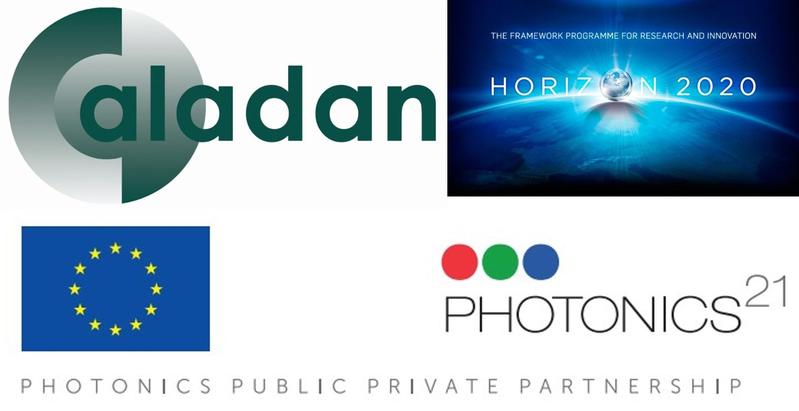
EU CALADAN Project Aims to Cut Optical Transceiver Costs

Project Logo and Funding Logos
CALADAN is an EU H2020 project, coordinated by IDLab, an imec research group at the Ghent University, which will establish a supply chain for fabrication of optical transceivers at significantly lower cost and higher throughput than what is achievable using current fabrication methods.
The CALADAN project is an initiative of the Photonics Public Private Partnership and is funded under the H2020 ICT Call; it started on 1st January 2019 and will run for 4 years. The CALADAN consortium consists of 3 leading European research institutes, 3 large enterprises and 3 small-to-medium enterprises.
Over the past decade, we have witnessed the rapid emergence and adoption by our society of internet and cloud based software applications such as e-commerce, e-governance, e-health, video-on-demand, massive online gaming, social media platforms, internet search engines, etc. Behind the scenes, all these software applications are running on large, warehouse-scale data centers.
The amount of data and computations that need to be handled by such data centers is still growing exponentially. The anticipated rollout of 5G, Artificial Intelligence and Internet-Of-Things technologies is set to put further pressure on data centers.
CALADAN addresses in particular the communication links inside data centers that connect the individual servers together. Within 5-10 years from now, the industry foresees a need for fiber-optic transceivers with capacities close to or even beyond 1Terabit/s. Currently, no known solution can provide such bandwidths at reasonable costs and power consumption.
CALADAN will develop integration technology based on micro transfer printing of high-speed SiGe BiCMOS electronics and GaAs quantum laser chiplets onto Silicon Photonics wafers. The technology can integrate optics and electronics in massively parallel steps fully at the wafer level, thus significantly increasing the fabrication throughput and reducing manufacturing cost.
The CALADAN consortium consists of the following partners:
1. imec and Ghent University, Belgium, as coordinator
2. University College Cork – National University of Ireland, Cork and Tyndall National Institute, Ireland
3. IHP GMBH – Innovations for high performance microelectronics, Germany
4. X-Celeprint Limited, Ireland
5. Innolume GMBH, Ireland
6. Mellanox Technologies LTD, Israel
7. Xilinx Ireland unlimited company, Ireland
8. Ficontec Service GMBH, Germany
9. EV GROUP E. Thallner GMBH, Austria
Dr. Patrick Steglich
https://www.imec-int.com/en/articles/eu-project-caladan-set-to-reduce-manufactur…












